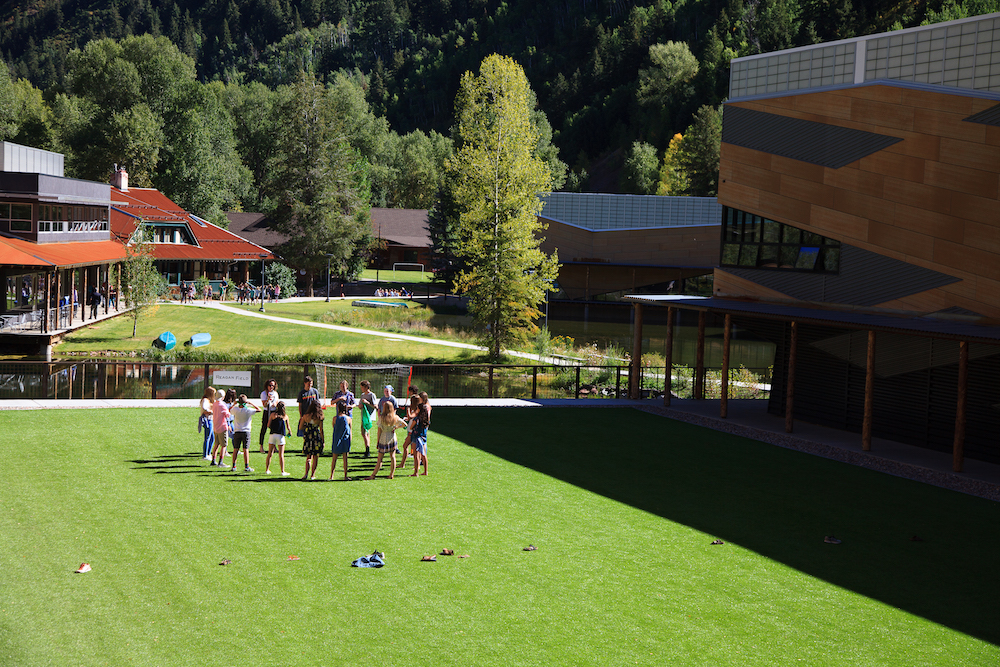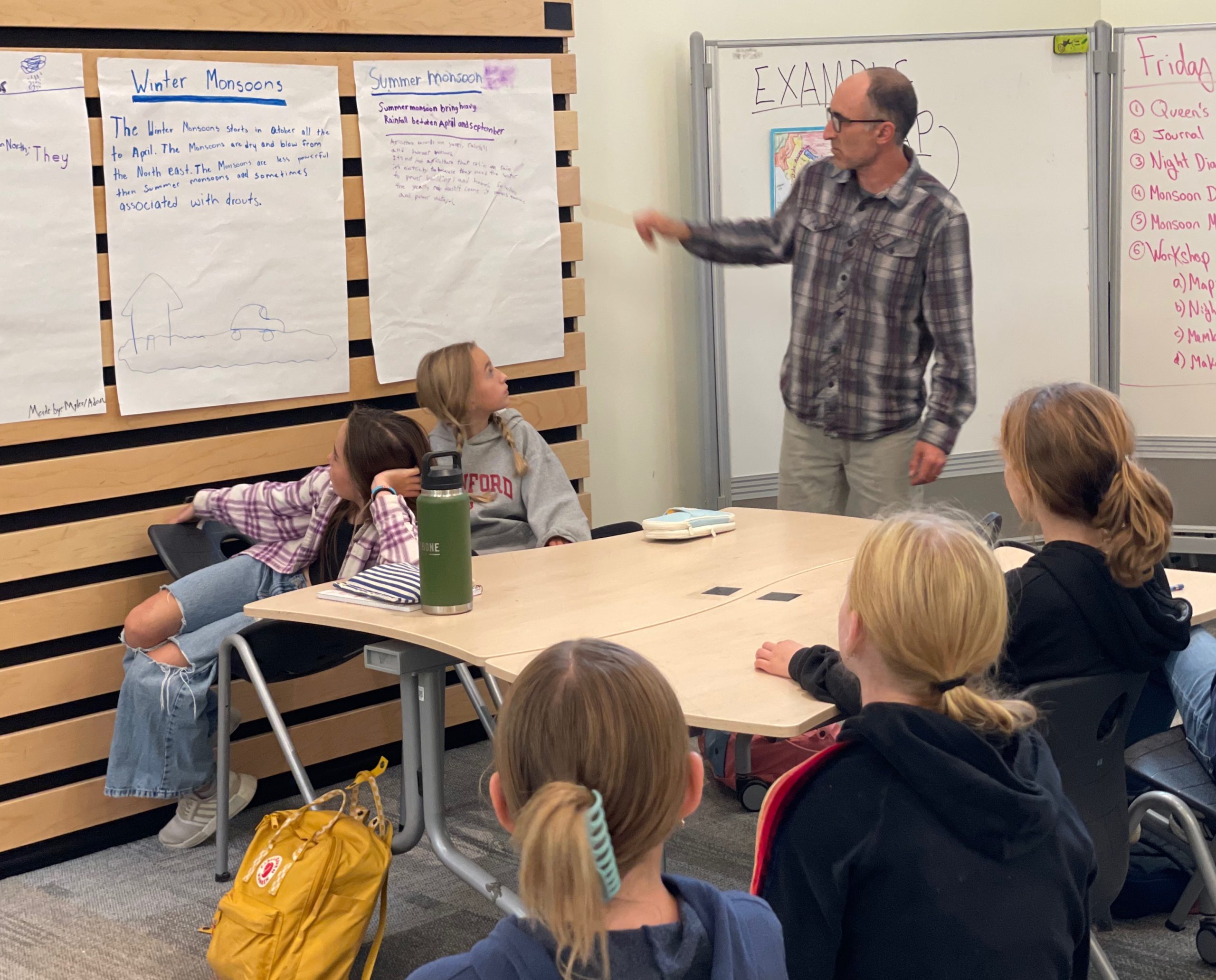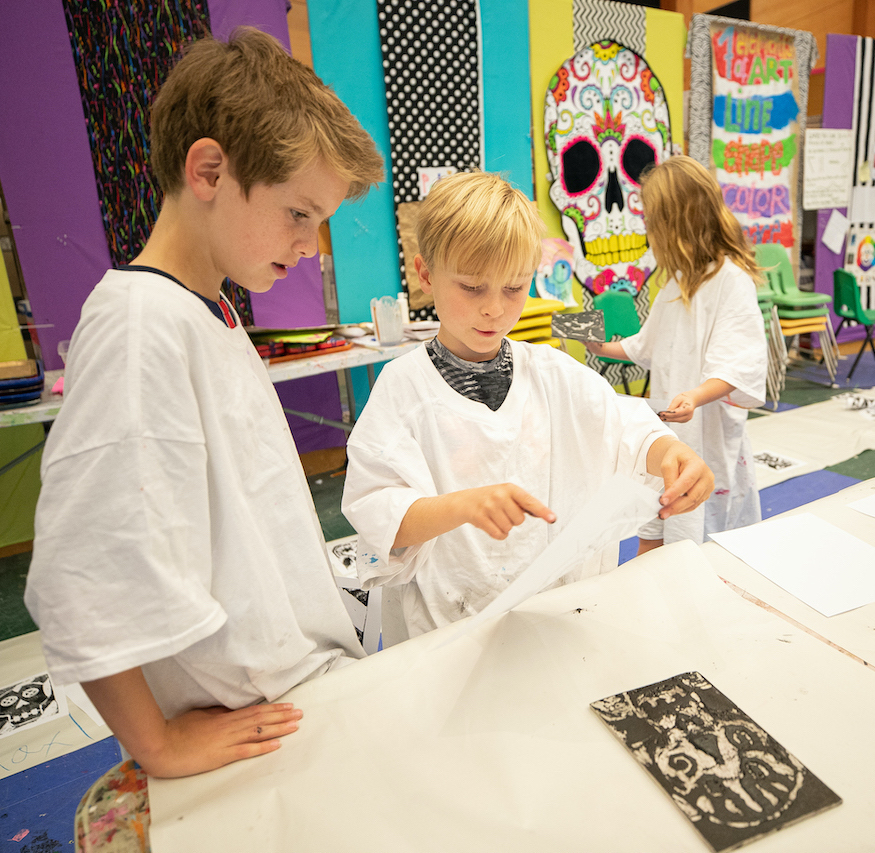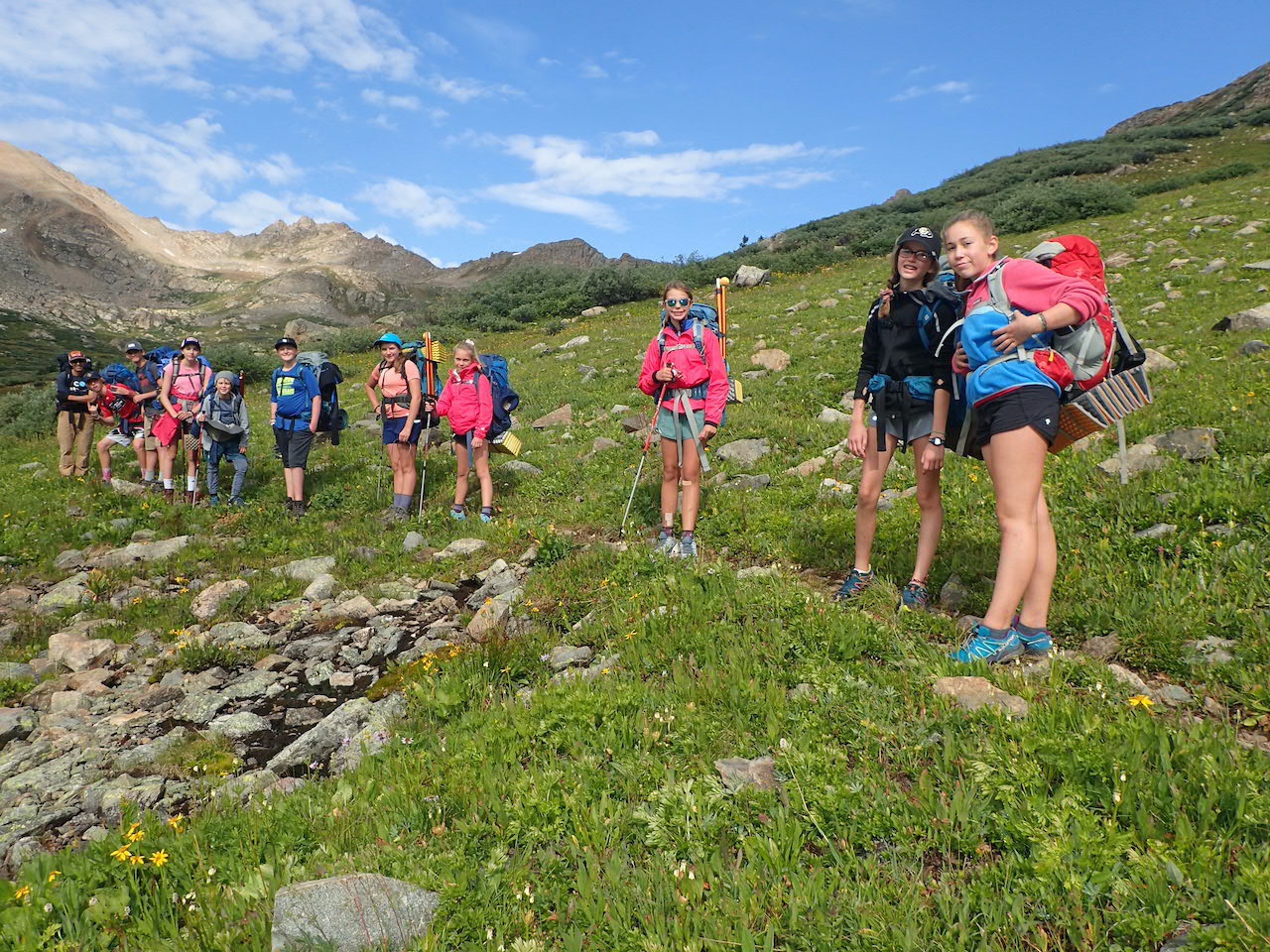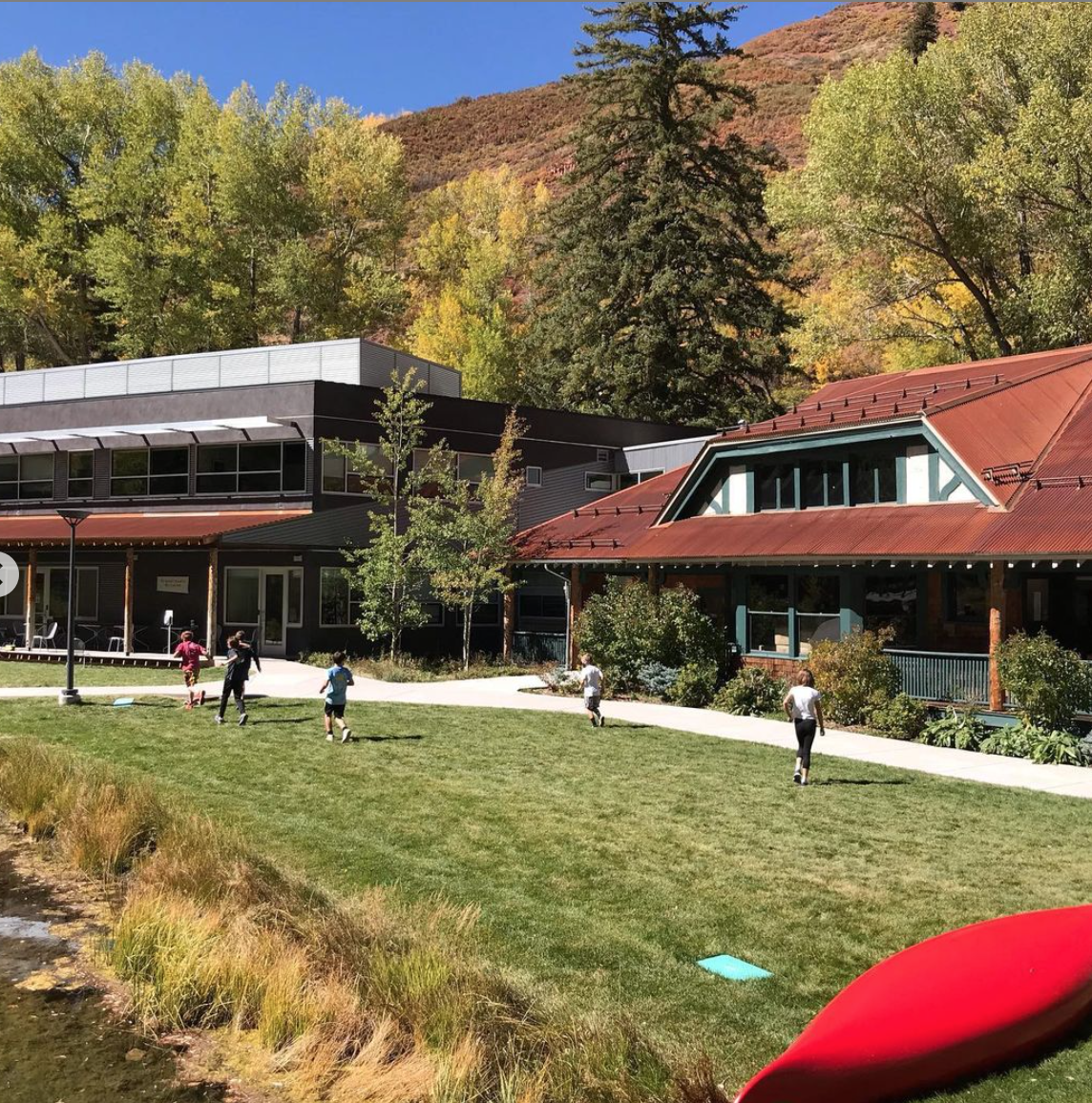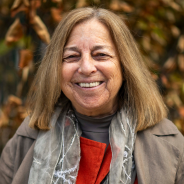Sixth Grade
The first year of Middle School is an exciting time of adjustment, achievement, and discovery. Students move away from the traditional Lower School homeroom model and switch classes each period. Their life at school is anchored in an Advisory group that meets several times per week.
ACADEMICS
Responsibility is the theme of the academic year in Sixth Grade. Students are deepening their ability to complete extended assignments, collaborate on group projects, and engage in their schoolwork. Teachers are there to guide them along the way, fostering valuable study habits for the journey ahead.
Humanities
Sixth Grade Humanities is designed to help students develop strong critical thinking and literacy skills while simultaneously deepening their understanding of our world, and its past. Humanities combines the traditional disciplines of English and history into a singular class that captures the social studies and English benchmarks through engaging thematic units. Students read an anchor novel that drives their learning for each of four units titled: Home, Family, Freedom, and Creativity. Daily, students practice the disciplines of vocabulary development, writing mechanics, geographic literacy, and writing. Students write four formal pieces of writing throughout the course of the year. They also engage in individual and collaborative project-based learning assignments. Sixth Grade Humanities is a yearlong investigation into how people interpret and record the human experience.
Mathematics
As students enter Middle School, mathematical concepts become increasingly abstract, and classes are structured to ensure that each student has the ideal balance of support and challenge. In Sixth Grade, instructional time focuses on four critical areas: (1) connecting ratio and rate to whole number multiplication and division and using concepts of ratio and rate to solve problems; (2) completing understanding of division of fractions and extending the notion of number to the system of rational numbers, which includes negative numbers; (3) writing, interpreting, and using expressions and equations; and (4) improving mathematical practices.
Earth Science
Sixth Grade Earth Science focuses on learning about the Earth’s characteristics and processes. Students learn about the characteristics of each layer in the Earth, the history and theory of plate tectonics, earthquakes, volcanoes, and minerals. They connect knowledge of physical science concepts of density and viscosity to their understanding of processes such as plate tectonics and volcanism. During a plate boundaries group project, students grapple with the same data scientists use to determine the location and type of motion at each plate boundary. Students share their understanding of plate tectonics with their Third Grade buddies when they present and explain their plate boundaries 3-D models to them.
Sixth Graders also study water, including both freshwater and oceanic systems. The year concludes with an astronomy unit focused on movements of the Sun, Earth, and Moon as related to seasons, moon phases, and eclipses. Students demonstrate their comprehension of concepts through class conversations, activities, projects, presentations, and a cumulative assessment.
World Language
In Sixth Grade, students select one language they will study for the rest of their Aspen Country Day School journey. Middle School students develop their understanding of culture through comparing and contrasting to their own experience, with a focus on creating an appreciation of how people from different cultures have helped shaped our culture. Students increase their comfort with reading and writing in the target language and are expected to converse in the language during a portion of each class.
Arts
Sixth Graders balance their time in the arts among drama, music, and studio art. Many new skills and materials are available to them, and they relish the opportunity to extend their creative expression. In one recent year, Sixth Graders were reluctant to give up the Shakespeare Festival they enjoyed in Lower School and decided, as a group, to workshop a performance of King Lear.
Art
Each assignment in Sixth Grade Art class gives students an opportunity to explore the different concepts and benchmarks associated with their grade level. Students study color theory, line and shape in a Cubist-inspired chalk pastel portrait. They then take it a step further to create a 3D clay form inspired by their portrait. Sixth Grade artists also have the opportunity to work on costumes, props, and the set for the play.
Music
Students work collaboratively on long-term performance and recording projects. This is a “no experience required course” that asks students to step out of their comfort zones and try new things. At the heart of this course is a hands-on, active approach to getting students excited about playing instruments and performing and recording together as a group. All students will try out a variety of contemporary instruments including but not limited to drums, bass, guitar, piano, organ, percussion, and vocals. Students learn arrangement and rehearsal skills while also building vocabulary that will help them communicate in diverse musical situations. They will also cover the fundamentals of multi-track recording and learn about the processes involved in modern recording studios. Students are expected to be helpful and respectful of others in the room, engage in each project with a positive attitude, be flexible and adaptable if they’re asked to try something that new, participate in performances as required, and above all, enjoy making music.
Drama
A Creative Arts program in Middle School offers immersive courses in art, music, theater, and design/engineering. There are two inclusive “showcases” during the year, featuring the talents of all Middle School students.
Outdoors
Sixth Graders join mixed-grade teams on the fall outdoor education trip. They explore the backcountry around Aspen with teachers and Seventh and Eighth Graders. As always, outdoor activities — whether on a trip, on campus, in PE class, or on ski days — are a primary way students learn the value of teamwork and of Aspen Country Day School’s core values of character, respect, responsibility, community, and perseverance.
Physical Education
Sixth Graders build their skills in traditional team sports: volleyball, basketball, soccer, handball, and hockey, with a focus on the development of strategy and fair play. They are also introduced to ultimate frisbee and other non-traditional sports and games. Sixth Graders canoe on the campus ponds in preparation for their spring multi-sport trip to the desert in Western Colorado. In Middle School, students have afternoon ski days in mixed-grade groups with teachers as chaperones.
Outdoor Education
Sixth, Seventh, and Eighth Grade students participate in the fall backpacking trips in small groups that venture out into the backcountry for peak climbs or point-to-point expeditions. These multi-grade groups develop bonds among grade levels and build community in the Middle School. Eighth Graders play a special role as leaders of their teams. The fall trips give students essential lifetime skills in backpacking, the most accessible of mountain sports. Sixth Graders have a mutli-sport experience in Western Colorado in spring to solidify some of their important skills learned over the years, including rock climbing, rappelling, and desert hiking, along with an introduction to the rafting skills they will use in Eighth Grade.
SIgnature Programs
Sixth Graders step into their first Middle School year with enthusiasm. They embrace some of the subtle changes that give them more independence and responsibility, such as skiing with their teachers (rather than parent chaperones) on ski afternoons, and having their own Chromebooks to take home each night for homework (and remember to recharge!).
Projects & traditions
Highlights of the Sixth Grade year include special academic projects like “World of Big & Small” in math class (when students scale up a common object using their knowledge of proportions). They experience their first final exams at the end of each semester. All main academic classes (except World Language) are in the Middle School building, a state-of-the-art facility designed specifically for this age group. The increased academic demands and independence of this grade foster tremendous growth over the Sixth Grade year.
Advisory
The Aspen Country Day School Middle School Advisory Program matches each student with an advisor who serves as a mentor and advocate. This faculty member acts as the facilitator of communication between home and school for any issues related to a student’s Middle School experience. In addition to daily meetings, advisories meet throughout the week for academic coaching and relationship and community building.
Working with a small group of approximately ten advisees throughout the year, advisors help students incorporate each of the Aspen Country Day School graduate outcomes into their daily lives. The advisory program promotes healthy relationships, academic progress, and solid communication between home and school. Overall student wellness is a team effort, and the intention at Aspen Country Day School is for all students to experience a supportive community where they are known and loved. With this foundation, they become prepared to foster and contribute to the common good.
One-to-one Chromebook program
Sixth Graders are issued a Chromebook, which serves as an academic tool throughout Middle School. Students access online text books, teacher blogs, videos, TED talks, primary sources, and other resources to curate the information necessary to participate in the curriculum in each class. They also use technology to create presentations which may include Lucidchart, films, blogs, podcasts, or original TED Talks.
